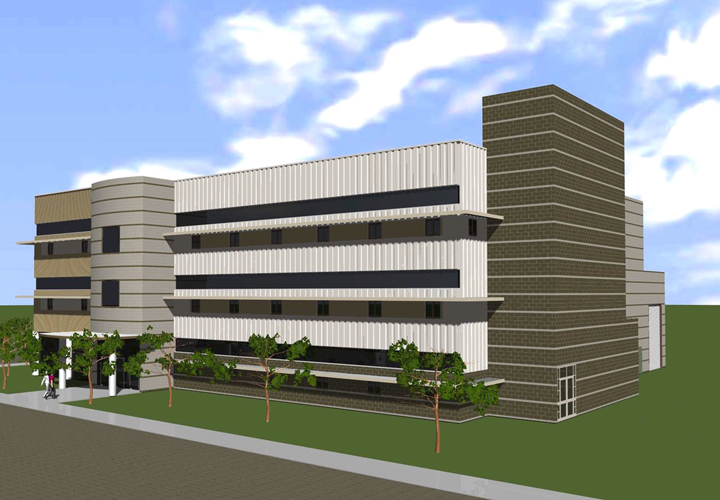 Idaho National Laboratory's Sample Preparation Laboratory (SPL) is designed as a hazard category 3 facility to serve as a national center for accelerated research, development, and qualification of nuclear materials. SPL's nuclear materials analysis capabilities will increase the understanding of nuclear materials, leading to advancements that will extend the life of the current fleet of reactors and development and deployment of materials for advanced reactors.
Idaho National Laboratory's Sample Preparation Laboratory (SPL) is designed as a hazard category 3 facility to serve as a national center for accelerated research, development, and qualification of nuclear materials. SPL's nuclear materials analysis capabilities will increase the understanding of nuclear materials, leading to advancements that will extend the life of the current fleet of reactors and development and deployment of materials for advanced reactors.
Construction of SPL began in June 2020.
SPL will play an important role in America's energy future. Extending the life of the current reactor fleet requires a deeper understanding of the degradation mechanisms and service life of the in-core structural materials used in these systems. Likewise, the economic and safety performance of advanced reactor technologies relies on the development and qualification of improved fuel cladding and structural materials. The national infrastructure for mechanical testing, detailed microstructural examination, and surface characterization of high-activity irradiated material in the U.S. is limited. This limited infrastructure constrains critical material development and qualification activities; SPL is designed to fill this gap.
SPL provides dedicated high-throughput sample preparation, mechanical testing, surface science, and microstructural analysis that address these limitations. Its automated operations in fourth-generation shielded cells will efficiently generate information on material mechanical performance, microstructure, and environmental effects over eight orders in length scales. Coupled with modeling and simulation, the increased quality and volume of information available will greatly reduce the time required for development of new radiation-resistant materials. SPL is designed as a user facility to allow visiting researchers access to scientific instruments while minimizing exposure to radiological environments. Instruments are operated from control consoles outside of facility radiological boundaries or remotely from the Research Collaboration Building on the MFC site.
The capability to handle medium-sized and small casks typically used for material shipments allows direct material shipment to and from other sites, removing a significant barrier to cooperation with industry, universities, and other U.S. and international laboratories. Electrical Discharge (EDM) and conventional machining allow fabrication of samples appropriate for testing from larger sections of structural materials retrieved from operating or decommissioned reactors. These materials can then be reinserted into INL's Advanced Test Reactor to further accumulate irradiation damage at an accelerated rate, allowing accurate predictions of material properties.
Hazard category 3 nuclear facility
Fatigue and fracture toughness testing
Tensile testing at ambient and elevated temperature
Charpy impact testing
X-ray photoelectron spectroscopy (XPS)
Electron microscopy
Hardness testing
Shielded x-ray diffraction
High throughput sample preparation
Receipt of medium-sized casks (BRR, NRBK, GE-100, etc.)
Automated sample transfers to instruments
Heat treatment of irradiated materials
Remote operation of instruments
Long-term storage of critical material samples
Research space for user-defined instruments